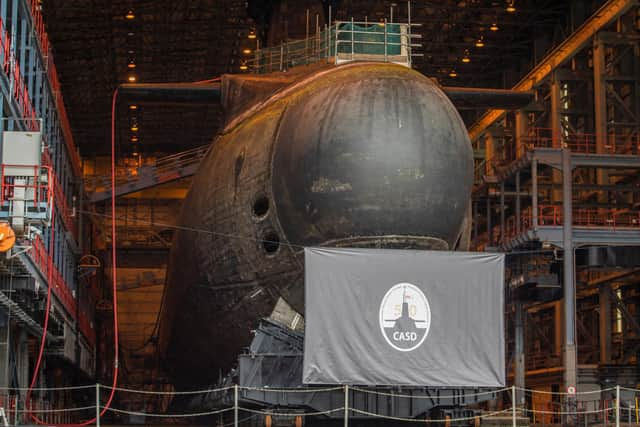COP26 climate change summit: Rising seas pose a threat to nuclear bases and power plants – Scotsman comment
As Agar Iklenia Tejada, 31, spoke of how three of the islands occupied by the Guna people were already underwater, she began to cry. “One of the islands is the one that I was born in and grew up in, so it’s very emotional to even talk about it,” she said.
However, it is a mistake to view sea-level rise as a problem for low-lying islands in faraway places.
Advertisement
Hide AdAdvertisement
Hide AdA recent report by the Nuclear Consulting Group warned military nuclear infrastructure on the UK coast was “profoundly vulnerable to flooding from sea level rise, storm intensity and storm surges” with questions about the “operational viability” of the Faslane base, home to Britain’s nuclear submarines.
Now the Nato Secretary General Jens Stoltenberg has urged member states to ensure they are ready to deal with the effects of global warming.
“What we see is that rising sea levels impact our naval bases and many of them are subject to regular flooding because of increased sea levels. This is, of course, the responsibility of each and every ally to adapt, to address the impacts of climate change,” he said.
Stoltenberg added that climate change was acting as a “crisis multiplier... exacerbating conflicts around the world and… making the world more dangerous”.


Rising seas are also a potential problem for nuclear power stations, which are usually built by the coast for easy access to large amounts of water.
So while the GMB union yesterday urged the Scottish government to build new nuclear plants – saying “bluntly there will be no net zero [carbon emissions] without new nuclear” – this is now an extra factor to be considered in their construction.
And rising seas are, of course, not the only issue. The heavier rainfall and more intense storms brought by climate change are also raising safety concerns over much vital infrastructure in the UK, particularly our railways.
The longer the world takes to stop adding fuel to the fire of global warming, the worse all these problems will get – more expensive to fix, more politically dangerous, more life-threatening.
Advertisement
Hide AdAdvertisement
Hide AdSo we should take heed of the tears of a woman from faraway, lest they become our own.
A message from the Editor:
Thank you for reading this article. We're more reliant on your support than ever as the shift in consumer habits brought about by coronavirus impacts our advertisers.
If you haven't already, please consider supporting our trusted, fact-checked journalism by taking out a digital subscription.
Comments
Want to join the conversation? Please or to comment on this article.
